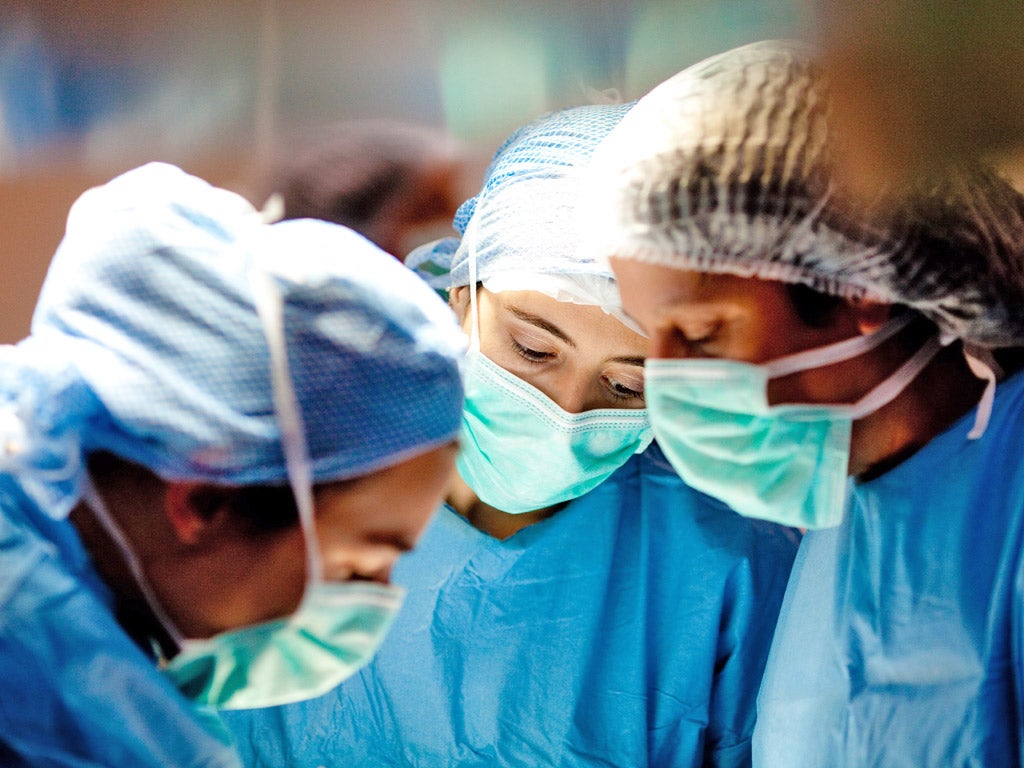Scandal of sub-standard NHS care for sick children
At least a quarter of all youngsters admitted to hospital for surgery 'do not get adequate care'

Your support helps us to tell the story
From reproductive rights to climate change to Big Tech, The Independent is on the ground when the story is developing. Whether it's investigating the financials of Elon Musk's pro-Trump PAC or producing our latest documentary, 'The A Word', which shines a light on the American women fighting for reproductive rights, we know how important it is to parse out the facts from the messaging.
At such a critical moment in US history, we need reporters on the ground. Your donation allows us to keep sending journalists to speak to both sides of the story.
The Independent is trusted by Americans across the entire political spectrum. And unlike many other quality news outlets, we choose not to lock Americans out of our reporting and analysis with paywalls. We believe quality journalism should be available to everyone, paid for by those who can afford it.
Your support makes all the difference.A child admitted to his local hospital with stomach pains died from a burst appendix after surgeons failed to diagnose the problem or to transfer the child to a specialist centre in time.
The case is highlighted in the largest study of deaths of children after surgery in NHS hospitals, which found more than one in four received care that fell below acceptable standards.
The report is by the National Confidential Enquiry into Patient Outcomes and Deaths (NCEPOD). Andrew Lansley, the Health Secretary, has warned NHS managers that they would be sacked if they failed to meet agreed timetables for achieving clinical and financial sustainability for their trusts. This month, Mr Lansley published a list of the 20 most vulnerable trusts, among 115 still awaiting foundation status.
David Mason, consultant paediatric anaesthetist and an author of the NCEPOD report, said in 2011 children should not be dying from appendicitis, one of the commonest surgical emergencies in the NHS. "It is worrying that this is happening and it is symptomatic of the issues we found. Appendicitis is a common problem and the tragedy is it was not picked up till it was too late."
The child was becoming rapidly sicker as doctors at the local hospital struggled to diagnose him and there was a 10-hour delay before he was transferred to a specialist children's hospital. But his appendix had become gangrenous and he died a week later of multi-organ failure.
Dr Mason said delays in the transfer of children to specialist hospitals was a key factor in the 378 child deaths between 2008 and 2010 examined in the report. "What we need are clinical networks linking district general hospitals with specialist children's hospitals so that when a child comes in they can be confident of getting the same quality of care wherever they are admitted and there is a system for transferring them when that is necessary."
"Yet fewer than half of the hospitals were part of a surgical clinical network when a whole series of recommendations from medical organisations and the Department of Health in recent years have said this is what they should be doing."
The report is the third by NCEPOD into surgery in children and found standards had improved since its previous inquiry in 1999, with 71 per cent receiving good care. But it concluded that in 26 per cent of cases studied, care fell below the "standard that [NCEPOD] advisers would accept from themselves or their insitution".
Bertie Leigh, NCEPOD chairman, said he did notknow whether to be pleased or "outraged" by the findings but said the "most disappointing" finding was the poor organisation of care. Barely half of hospitals (53 per cent) were auditing their care, few were co-operating with neighbouring instituions and nearly one in five lacked policies for identifying the sickest children.
"In every area that the authors studied they found room for improvement," Mr Leigh said.
The numbers...
378 deaths of children in hospitals between 2008 and 2010 were investigated. Authorities were criticised for poor organisation.
26% of sick children suffered from inadequate care in hospital.
53% of hospitals do not audit their care systems for children.
Join our commenting forum
Join thought-provoking conversations, follow other Independent readers and see their replies
Comments